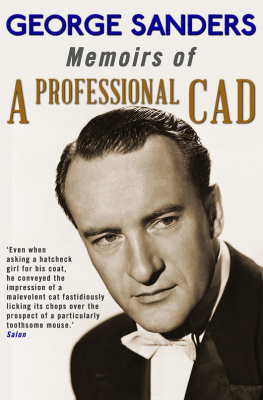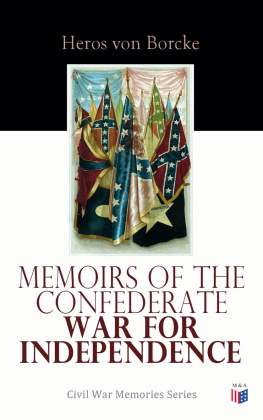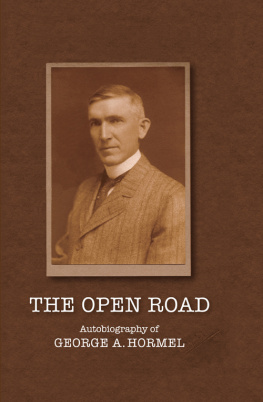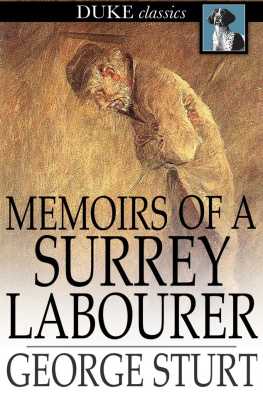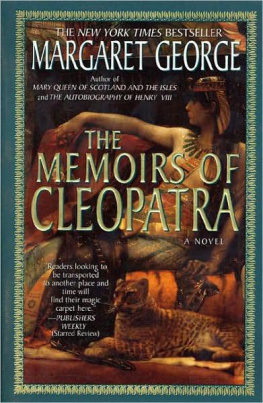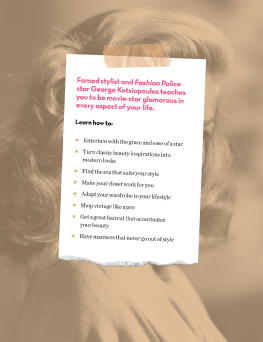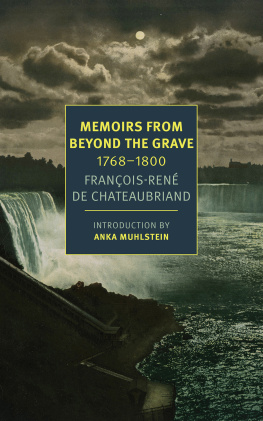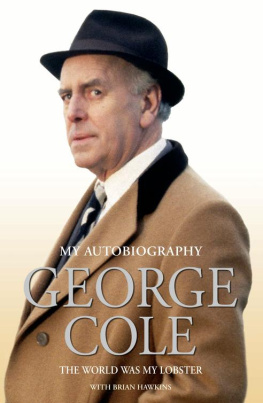CHAPTER 1
On July 3, 1906, the world was at peace. Nothing of any consequence seemed to be happening in the capital cities of any of its countries. Nothing disturbed the summer lethargy of its population. Everywhere people dozed contentedly, unaware that an event of major importance was taking place in St. Petersburg, Russia. At number 6 Petroffski Ostroff, to Margaret and Henry Sanders, a son of dazzling beauty and infinite charm was being born. It was I.
I emerged somewhat reluctantly from my mothers womb at 6 oclock in the morning. My father, who had been warned of the impending event only a short time prior to its occurrence, had rushed off to get the midwife who lived across the Neva on the Vassilsky Ostroff. He drove in a droshky to the Toochkoff Bridge, a wooden bascule, or draw, bridge, which was opened sometimes in the summer to let the river traffic through. It was opening when he reached it. Alighting from the carriage and disregarding the warning cries of the boatmen, he leapt across the widening gap and ran the rest of the way to the midwifes house. He brought her back across the river in a rowboat, and in a state of exhaustion, pushed her into my mothers room, where she accomplished a successful delivery.
In the light of the fact that I have been supporting my father for the past twenty years, his concern for my welfare at the time of my birth would appear to have been thoroughly justified.
I was born into a world that was soon to disappear. It was a world of clinking champagne glasses, of colonnaded private ballrooms with scintillating chandeliers, of heel-clicking be-monocled princes in gorgeous uniforms intent upon their ladies as they drove in their jingling troikas through the moonlit snow.
A world that was not to be recreated for forty years and then by M-G-M in Cinemascope with Fernando Lamas.
My parents were not members of the nobility nor were they terribly rich. But like most people seemed to be in those days, they were well-off. They were both born in St. Petersburg but were not orthodox Russians, since their ancestors came from Scotland. My mother was descended through her grandmother from the Thomas Clayhills of Dundee, who went to Estonia in 1626 to establish a business there. Thus it was from forebears of solid social position and impeccable respectability that my mother came.
To the best of my knowledge, my father came in the mail.
We had a summer house in Estonia at a place called Hungerburg. In common with its neighbors, it had a large veranda overlooking the beach.
Mixed bathing was not allowed, since everybody swam or paddled in the nude. Men and women went into the water in shifts controlled by the position of a pennant attached to a tall flagpole that dominated the beach.
When the pennant was down it was the mens turn. When it was raised the men would come out of the water and disappear into their respective beach-house enclosures.
Then, timorously, casting wary looks to right and left, and crossing their arms across their breasts to clothe their nudity, the women would tiptoe out of their cabanas and, gaining courage with every step, make their way down to the waters edge where they would dunk themselves like so many doughnuts, squealing with sensual delight, secure in the conviction that they were not being observed.
Meanwhile, the men would take up their favorite positions on the verandas, whence they watched these activities through high-powered binoculars.
In this manner a commendable degree of decorum was preserved within an atmosphere of genteel concupiscence.
And my own instruction in anatomy, though frequently interrupted by the importunities of my nurse, was initiated on a solid foundation.
Many of our winters were spent on an estate we had acquired across the Finnish border at a place called Mustamaki.
While in the grounds of our town house in St. Petersburg we had a private skating rink and a couple of artificially built-up toboggan runs, in Mustamki the whole countryside, blanketed with crisp, sparkling snow, lay open to us for skiing, skijoring and riding spaakstotin.
There was the incomparable, invigorating air scented by the pine trees. There was the ice-yachting on the frozen lake. There were the high-speed sleighs, drawn by diminutive fast-running Finnish ponies, their bridles hung with merrily jingling bells.
The estate was to prove a godsend when the time came for my parents to flee from the Bolshevik revolution.
When I look back on my childhood it seems to me that all of my activities consisted in swimming, canoeing, sailing, skiing, tobogganing, skating and listening to my father play the balalaika.
My father was regarded as the best amateur balalaika player in St. Petersburg. He was in fact the co-discoverer of the instrument with the celebrated Andreyeff. Previously the balalaika was known only to country folk who used it for accompanying their village choirs. Andreyeff and my father brought the instrument to St. Petersburg and together they had a lot of successful soirees in fashionable circles. It was at one of these that my mother met my father for the first time and became fascinated by his balalaika.
She was a woman of great beauty, as well as being an heiress to a modest fortune, a fact which struck as responsive a chord in my father as any that he could pluck from his bizarre-looking instrument.
It was inevitable that a number of balalaika concerts later they were married.
The concerts continued. Andreyeff and my father became the rage of St. Petersburg. In the course of time word of their virtuosity reached the Imperial family and they were invited to perform at court. Their debut at the vast castellated palace at Gatchina that was the summer residence of Tsar Alexander III was so successful they were given medals and decorations of a size and of an order of magnificence that would have turned Douglas Fairbanks positively green with envy.
I myself was being taught the violin, but I could not see myself winning any medals at it, so I chucked it. My interest lay in sport, in fun and in games, and of these I had plenty.
If it is true that a mans character develops for the good in proportion to the fun, the degree of happiness and the amount of bountiful love he experiences in childhood, then I must have the most noble and wonderful character in all the world. Personally, I feel that I am the living proof of this contention. However, a surprising number of people think otherwise.
At all events, until the day that my mother took me to school in England my life seemed to be nothing but fun. I remember having an odd feeling on the day we left St. Petersburg that we would never return. As it turned out, we never did. It was this poignant moment of leave-taking that was also my closest brush with history.
Sir Winston Churchill touched unwittingly upon this moment of my life when he wrote of certain events that were taking place in 1917:
In the middle of April the Germans took a sombre decision... they turned upon Russia the most grisly of all weapons. They transported Lenin, in a sealed truck, like a plague bacillus from Switzerland into Russia.
Lenin was going in as I was coming out. At the Finland Station in St. Petersburg he was being met by his pals Joe Stalin, Kamenev, Zinoviev, Trotsky and the rest of the Bolshevik gangsters.
I was being seen off by my father, my Uncle Frederick in his scarlet Cossack uniform, my Aunt Margaret, Prince and Princess Erivansky, Count Benkendorff and my Cousin Agnes.
Lenin was arriving full of plans for my money. I was leaving for school in England, serenely unaware of his existence.
To the rest of our gay and well-to-do gathering, Lenin and his fellow conspirators were just a bunch of rather badly behaved peasants.
Lenins plans were not confined to the appropriation of the trust funds that various affluent uncles and aunts of mine had set up to insure for me the sort of life that would have suited my indolent nature they were far more comprehensive. They included everybody elses money as well. They also included the murder of most of my relatives.

